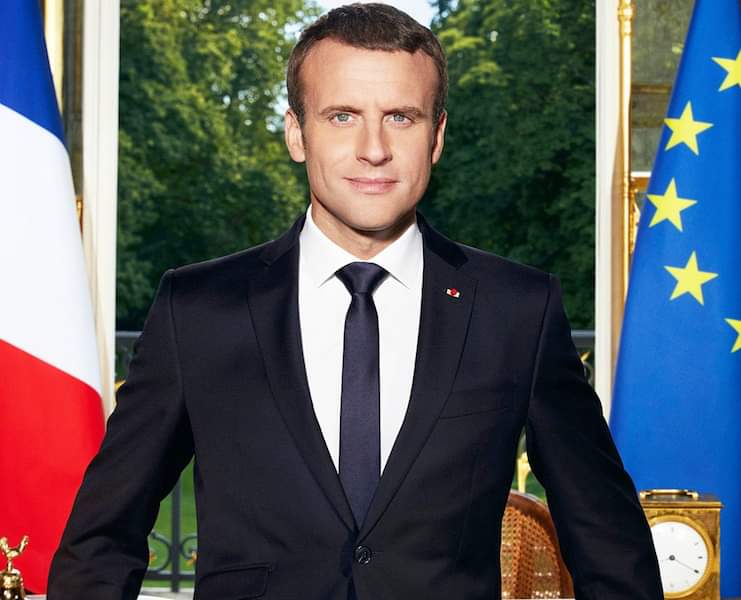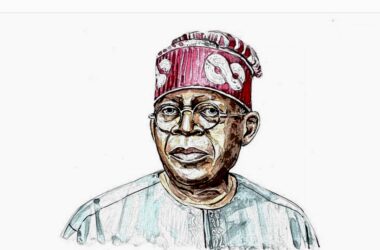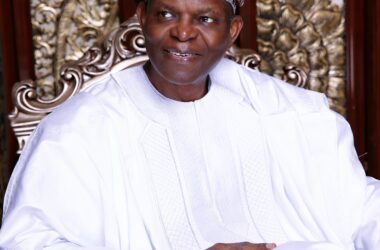As the Summit for a New Global Financing Pact came to a close in Paris at the weekend, the host and President of France, Emmanuel Macron announced that rich nations have scheduled how to pay an overdue $100 billion climate finance pledge to developing countries and created a fund for biodiversity and the protection of forests.
President Macron stated this at a final panel of a summit in Paris where some 40 leaders, including two dozen from Africa, China’s prime minister and Brazil’s president had gathered to give impetus to a new global finance agenda.
At the 15th Conference of Parties (COP15) of the United Nations Framework Convention on Climate Change (UNFCCC), in Copenhagen in 2009, developed countries committed to a collective goal of mobilising USD 100 billion per year by 2020 for climate action in developing countries, in the context of meaningful mitigation actions and transparency on implementation.
The goal was formalised at COP16 in Cancun, and at COP21 in Paris, it was reiterated and extended to 2050.
Meanwhile, according to Down to Earth (DTE), a magazine published by the Centre for Science and Environment, a think tank in New Delhi, India, the just concluded summit in Paris did not precipitate any transformational solutions, but it started a conversation on the climate and development financing crisis, and this momentum cannot be lost.”
The summit’s objective is to boost crisis financing for low-income states and ease their debt burdens, reform post-war financial systems and free up funds to tackle climate change by getting top-level consensus on how to promote a number of initiatives struggling in bodies like the G20, COP, IMF-World Bank and United Nations, according to VOA.
The $100 billion pledge falls far short of poor nations’ actual needs, but has become symbolic of wealthy countries’ failure to deliver promised climate funds. This has fueled mistrust in wider climate negotiations between countries attempting to boost CO2-cutting measures.”
“The World Bank said on Thursday it would ease financing for countries hit by natural disasters and the International Monetary Fund announced it had hit its target of making $100 billion in special drawing rights (SDRs) available for vulnerable nations.
Of the $100 billion in SDRs to be rechanneled, Washington has yet to pass legislation to release its share, worth more than one fifth of the total. U.S. Treasury Secretary Janet Yellen said that it was a priority for the Biden administration to get approval in Congress.
“Leaders are fed up with the status quo, they want change,” World Trade Organization chief Ngozi Okonjo-Iweala had told the summit.
“Leaders agree that the multiple challenges that we are facing are all linked: poverty, climate change and food security go hand in hand. Developing economies need financing that is additional and accessible and they also want a just (climate) transition,” she said
Zambia clinched a deal to restructure more than $6 billion in debts owed to other governments, its president said Thursday, in a long-awaited breakthrough to ease pressure on the southern African country’s strained public finances, VOA reports.
However, DTE said, “The Summit took on the monumental task of addressing the lack of money flowing to poor and vulnerable countries as they battle “a cocktail of interconnected crises” as Prime Minister Abiy Ahmed of Ethiopia framed it — poverty, debt, inflation triggered due to the Russia-Ukraine conflict, and increasing climate impacts.
The Summit was never expected to solve these problems in a day-and-a-half, but it has started a crucial conversation.
“It shone a spotlight on the scale of these crises, the clear demands from countries of the Global South, and the pathways of action that the Global North is choosing to advocate for. And for this, whether he intended in good faith or not, Macron must be commended. Let’s unpack these.”
It said to begin with, countries of the South are in a debt crisis and are facing pressure to decarbonise their economies without adequate climate finance flowing in.
“African countries are facing an unprecedented funding squeeze. Public and private debt has reached new heights. Inflation in almost all commodities has risen sharply, and today daily meals are the biggest issue for many Africans,” said PM Ahmed.
“The developing world is sinking from debt,” said PM Mia Mottley of Barbados, a key figure who inspired the organisers to host the Summit.
“The UK took a hundred years to repay its debt for World War I and Germany had all the benefits of being able to have its debt service capped at three to five percent of its gross domestic product in order to rebuild after World War II. We are people too, we are countries too, and we deserve a similar treatment,” she added, as a rallying call.
Clear demands
If this was truly a summit to rebuild trust between the North and South, then luckily for Macron, the leaders of the South have very clear asks.
Multilateral Development Banks (MDBs) have been at the center of the discussion on financial systems reform, and Indian Finance Minister Nirmala Sitharaman pointed out that they are “being asked by non-borrowing shareholders to address transboundary challenges alongside their core development mandate”.
Thus, the pressure on MDBs’ resources will increase manifold, and the G20 Capital Adequacy Framework recommendations, while welcomed, are still not enough due to the scale and scope of development challenges, she added.
This reveals the politics at the core of the MDB reform discussion, where developed countries want to squeeze more out of existing MDB resources while simultaneously adding on climate as a part of their mandate.
US Treasury Secretary Janet Yellen assured all at the Summit that evolving the MDBs is not about displacing their institutional core development and poverty work, but about building resilience to shocks.
In reality however, developed countries are resistant to paying in more money from their budgets and also risking more influence from large economies like India and China if their paid-in share rises.
PM Ahmed of Ethiopia said more concessional and grant financing is needed, while PM Mottley laid out a call for reduction of debt levels in developing countries — particularly debt cancellations for least developed countries.
Mottley also emphasised that while private sector money can be unlocked, it cannot replace long-term development money. The latter is needed to help middle-income countries access concessional finance as well.
South African President Cyril Ramaphosa laid out his views on Just Energy Transition Partnerships (JETP) — a deal that his country is currently struggling to implement.
Such plans must consider each country’s circumstances, the needs of workers and communities, and developmental goals to address poverty and unemployment.
They must be flexible to accept that some fossil fuel generation might need to remain in existence to serve the country’s basic energy needs. And the financing of $8.5 billion offered to South Africa has been far below their estimated need of $98 billion and must have a greater emphasis on grants and concessional loans.
President William Ruto of Kenya stirred up audiences by calling for a global financing mechanism that is not hostage to national or shareholder interests. “We don’t want victimhood, we want to be at the table where we are all looking for solutions”, he said.
Brazilian President Lula da Silva asked why his country must trade in dollars and not in its own currency, an agenda that is also being advocated by the BRICS’ New Development Bank, which is currently headed by former Brazilian leader Dilma Rousseff.
What was announced
This was not a ‘pledging’ conference, but some announcements were unveiled, perhaps in an effort to address the thorny trust erosion issue.
1.MDBs: A contentious MDB Vision Statement document did not get full consensus at the Summit, and the Summit’s synthesis document mentions that “30 countries, in the presence of 8 Multilateral Development Banks” endorsed it.
It was however announced that an additional lending capacity of $200 billion would be unlocked for emerging economies. The World Bank announced disaster clauses for debt deals, that would suspend debt payment in the case of extreme weather events — an initiative that Mottley’s Bridgetown Agenda has advocated for.
New World Bank head Ajay Banga also unveiled a ‘Private Sector Investment Lab’ with the aim to “develop and rapidly scale solutions that address the barriers that are preventing the private sector from investing — at scale — in emerging markets and developing countries, with a specific focus on renewable energy and energy infrastructure”.
2. Special Drawing Rights: IMF Head Kristalina Georgieva announced that 100 billion in SDRs for vulnerable countries has been met. Some experts were quick to point out that 20 billion worth of SDRs are yet to pass through the US Congress — the US being the biggest quota holder of SDRs.
The ‘recycling’ of SDRs from rich countries whose central banks do not need the cushioning, to poor countries who need them or MDBs who can channel them, has been proposed by many as means to expand the amount of concessional finance to developing countries.
3. A new JETP: A new 2.5 billion Euro JETP deal was announced for Senegal, with a consortium of countries comprising of Germany, France, Canada, the European Union, the United Kingdom, with the goal of increasing the share of renewable energy in installed capacity to 40 per cent of Senegal’s electricity mix by 2030.
4. Polluter taxes: Momentum on polluter taxes accelerated at the Summit, with many groups supporting a tax on shipping emissions. More traction is expected on this issue at the International Maritime Organisation meeting in July.
Support is also growing for a financial transactions tax, with Frans Timmermans, vice president of the European Commission, commenting that it could generate huge revenue without being punitive on citizens and businesses, at a side event.
5. Debt: It was announced that Zambia reached a $6.3 billion debt restructuring deal in debt owed to other governments including China. Colombian President Gustavo Petro and Kenya President Ruto also proposed a Global Expert Review on Debt, Nature and Climate to “assess the impact of debt on low- and medium-income countries’ capacity to preserve nature, adapt to climate change and decarbonise their economies”.
6. Carbon markets: The EU unveiled a call to action on ‘Paris Aligned Carbon Markets’ with the goal of covering at least 60 per cent of global emissions with carbon pricing mechanisms (compared to four per cent today) and allocating a proportion of the revenues to climate finance.
Ursula von der Leyen, EU Commission President called it “one of the most effective tools to cut emissions”, while Timmermans added at a side event that even “industry is fond of it now as they find it quite predictable”.
7. Climate finance goal: It was suggested that the long overdue $100 billion climate finance goal will be delivered this year, something that was also alluded to at the Petersberg Climate Dialogue in May. The Paris Summit’s synthesis document mentions that this “should be further supported by confirmed figures provided by contributors and reported by the OECD”.
The way ahead
What was evident from the Paris gathering is that the demands from the leaders of the developing world seem to be falling on deaf ears. While call after call came for debt cancellation, concessional financing and grants, polluter taxes and the consideration that poverty eradication efforts cannot be sidelined for climate goals — everyone seemed to listen, except developed country governments.
Barbados Envoy Avinash Persaud said $2.4 trillion is needed per year in the developing world for the green transformation — this is 12 times current ODA levels.
But the EU and others spoke instead about incremental solutions, many of which are unproven to be scalable. Carbon pricing can be one tool in a package of many, but for European leaders to pitch it as a serious suggestion today shows their refusal to acknowledge the urgency and scale of financial need.
It took the EU 18 years to sort out their Emissions Trading System — the Global South does not have the time to tinker with the same.
There is also a fundamental refusal to own who should be responsible: Developed country governments and multilateral institutions.
Instead, the overwhelming emphasis from the Global North is on derisking private capital — Von der Leyen seemed to suggest this is “one of the main themes of the Summit”. But beyond herself and Ajay Banga, it is not obvious that everyone agreed.






